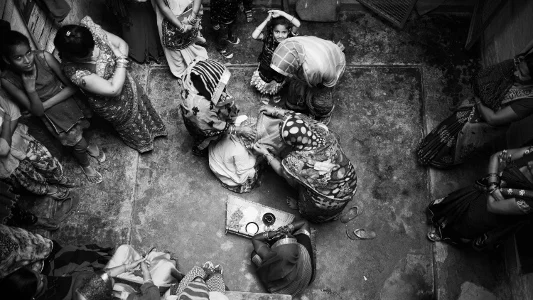How negligence with diabetes caused serious health issues

When he was 31, my father was diagnosed with type 2 diabetes – I was just 9 years old.
As a child, it was hard to understand what my father’s illness meant for him and our family. I remember trying to take care of him as best I could, but it was hard for me to understand why he couldn’t eat gulab jamuns or other tasty snacks anymore. I couldn’t understand why he started putting little white tablets (artificial sweetener) in his chai. And I couldn’t understand why he had to take so many pills throughout the day, or why he had to prick his finger again and again to test his blood.
Life with a diabetic father
Having a diabetic father has made my life an anxious one – I’m always worried about what’s coming next.
As he aged, I noticed some of the changes his type 2 diabetes brought. But I didn’t fully grasp what they meant until his health started to decline.
And it showed me that there were many different things that a diabetic has to deal with in everyday life. From eating the right amount of food to exercising and taking medications on time. And that if you don’t carefully control your blood sugar level and live a healthy life, you’re going to get a lot sicker.
Serious complications due to negligence
It was only when my father got sick that I realised how much impact diabetes could have on your everyday life! Especially when it’s managed badly.
My father took his insulin and medications on time but never avoided unhealthy foods. He also didn’t take care of his obesity.
Unfortunately, my father’s negligence led to some serious complications and caused his health to rapidly decline.
An incident I’ll never forget was during Ramadan. Everybody at our house was fasting except my father. He wanted to but with his health he couldn’t skip his medicines. One day, however, without letting any of us know, he fasted.
Things went well until noon. My father got up from the couch and went to the kitchen to get some water. I remember seeing his hands shaking as he poured water into a glass, before he dropped it, and it shattered on the floor. That’s when I realised he was hypoglycemic.
My mom tried to make him eat some sugar, but he wasn't getting any better. Eventually, we had to take him to the hospital where he was kept under observation for a day and then sent home.
Reaching the breaking point
Diabetics need to get a complete medical examination at least twice a year. You have to check your cholesterol levels, sugar levels, blood pressure, and the functioning of your heart and kidneys.
My father, however, would always get so anxious and stressed whenever we insisted he should get his tests done.
He would tell us, “No! I am doing perfectly fine, and there is no need to go to the doctor!”
Following this behaviour, he dodged the tests for two years.
But one day he wasn't feeling well; he was nauseous and tired and complained of back pain. We took him to the doctor, who conducted multiple tests.
A glomerular filtration rate (GFR) test showed that his kidney functions were decreasing. If not taken care of immediately this could lead to serious kidney problems.
In addition, an ultrasound showed that his liver had gotten fatty, which was also very serious.
This was shocking for us to hear because we hadn’t realised his diabetes could lead to such serious and alarming complications.
Taking action
To avoid any more complications, we decided to be vigilant and stick to a few simple rules:
- My father would regularly go to routine check-ups with his doctor.
- My mother would always carry his medication in her bag, to make sure he always got them on time.
- We’d put alarms on his phone to remind him when he needed to take his medications or eat his next meal, so no matter how busy he was, he’d remember that his health came first.
- We’d all carry small packets of biscuits or jellies with us at all times, just in case he became hypoglycemic and needed a quick sugar boost.
- My father would never again skip any medical examination.
- We’d make sure he only ate home-cooked, low-carb, healthy food.
Where we are now
The title of my father’s journey could very easily be called ‘Better late than never’.
He took his condition lightly in the beginning, and it caused him serious health issues. Thankfully, he realised he couldn’t take it for granted before it was too late.
Yes, as a diabetic he would have to make some lifestyle changes; some of them drastic. But it was possible and important.
My father is now 46 years old and healthy, and he’s doing his best. However, it’s very much a team effort.
It’s important to take care of your diabetic loved ones. Don’t let them overlook their health. They need a lot of love, care and attention. And while the journey isn’t easy, it’s also not that difficult!
Looking for more stories like this?
When Lisa’s dad was diagnosed with type 2 diabetes, she suddenly became a primary caregiver. Here are 9 things she wishes she’d known from Day 1.
Joining the workforce, Nirvaanika was keen to climb the corporate ladder. But first, she had to learn how to balance her work and her type 2 diabetes.
Supporting her type 2 diabetic father, Lisa learned early that people didn’t like to talk about his disease. But talking about it made it easier to manage.








